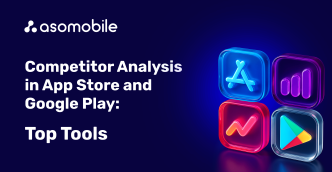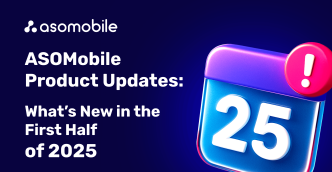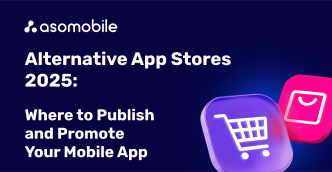Leveraging reviews for effective ASO
The answer to the question of how to use reviews for effective ASO often begins with the words “positive reviews.” Indeed, this phrase comes to mind first. But the answer to this question includes negative reviews, user experience, their vulnerable moments, increasing visibility, ratings, optimizing the application based on reviews, and many other interesting points. Because reviews and their use in app store optimization are one of the most fascinating topics. There are few boring statistics here and the numbers don’t dazzle your eyes. Working with reviews is about creativity, it is about communication and interaction with users, it is about sociality and even a little about psychology.
We have written extensively and fruitfully directly about ratings-reviews and tools for working with them. Therefore, in this article we will talk about the impact of reviews on the application in general and options for their beneficial use for ASO optimization in particular.

The importance of reviews in the success of the application
Active interaction with reviews demonstrates the developers' interest in users and the desire to optimize their experience with the application. This is attention, and attention is always nice. It's unpleasant when they don't answer. Therefore, contact is required. This increases the reputation of the app; users see that there are real people behind the app who can hear them. As a result, all efforts will raise the application in the rankings, improve its visibility and therefore increase the number of downloads.
Reviews are like a beacon for ships. This is a vector for the development of the application, indicating specific points that need to be finalized or improved. And most importantly - it's absolutely free.
- Useful and effective feedback. Through reviews, users communicate directly with developers. This is their key channel of interaction.
- Reviews are a treasure trove of invaluable information. On the one hand, it is about the users themselves - their experience with the app, wishes and preferences. On the other hand, about the application - all kinds of recommendations, complaints about specific errors, suggestions for new functions and possible improvements.
- Positive reviews lead the app to the first lines of store ratings, increasing conversion and visibility. Negative ones, in addition to being frustrating, point out the weaknesses of the application and help to really improve it.
- Anyone who doesn't work with reviews is uncompetitive. It is a fact. Because of the two options with an average rating of 4.5, the user will prefer the app with reviews. Because the complete absence or small number of reviews causes distrust, just like negative reviews, especially without responses from developers. Why is that? It's about social trust. A person believes a person, and the mobile application market is overly saturated with offers, the competition is sky-high, the user has plenty to choose from. In parallel with this, about 70% of people read reviews before installing an application. They read to evaluate the experience of other users and, based on this data, install or do not install the app. Therefore, working with reviews is of vital importance.
Competent work with reviews will bring many benefits, stars and high positions in ratings. It also optimizes the application, eliminating errors and expanding functionality. And of course, it will improve the user experience, which will retain existing users and attract new ones.
Differences in App Store and Google Play ratings and reviews
App Store and Google Play are the most popular mobile application platforms. They have many similarities, but there are two significant differences that are important to consider.
Visibility of ratings.
On Google Play, the user sees a rating almost everywhere where there is an icon for the app itself (search results, application page, favorites, categories, recommendations). By the way, Google shows the average rating by country (local) and devices, and not the overall rating for all places where the application is present. Germany has its own, Spain has its own, etc.
The App Store is more reserved on this issue - ratings are visible only in search results and directly on the product page.
Focusing store algorithms on ratings and reviews when ranking applications.
Google gives preference to recent reviews and ratings. Apple does not pay attention to dates; all reviews and ratings are important to it, regardless of how old they are.
Negative reviews and their impact on ASO
Negative reviews and low ratings mean:
- Reduced visibility in search results
- Reducing the number of installations
- Unlikely to be included in store selections and recommendations
- Low reputation, mistrust of users
Many users have already become accustomed to the rating of 3 stars as a kind of quality indicator; if it is lower, then such an application is definitely not worth wasting your precious time on. Google Play has become a trendsetter; it sets exactly the minimum bar. What can we say if even an application with a 4.5 star rating is significantly inferior to a competitor with 4.8. You need to understand that for both Google and Apple, the rating of applications is a key parameter for their ranking. A low rating (score) reduces the app's presence on stores, which reduces its visibility and, as a result, the number of organic installs.
On the other hand, app stores will not include products with low ratings or negative reviews in their collections and recommendations. Stores do not want to be providers of low-quality content.
The theme running through this entire article is the idea of the sociality of reviews. The rating of the application is visible immediately and this is the first checkpoint. The next one is reviews. And if they contain complaints and dissatisfaction, and even without a response from the developers, then the likelihood of installing such an application tends to zero. No one has canceled the power of words, therefore, we are vigilant and work diligently with reviews.
And one more nuance. It's not wise to invest in advertising to bring potential customers to an app page with negative reviews or no reviews at all, right? Therefore, first saturate the application page with reviews, then work with them correctly, and only then advertise.
So how to use user reviews in the context of ASO?
Here are the main benefits and points of application of ASO optimization efforts:
- Positive reviews are a direct benefit of any app. A simple logical chain: positive reviews raise the app’s rating in marketplaces, and the higher the app’s rating, the more noticeable it is to potential users. Plus, the stores themselves rank the app based on reviews, and the more good reviews, the more significant it is in the eyes of the stores.
- Positive reviews are good in themselves, but they can be used additionally. For example, in the app description. One successful quote from a satisfied user’s review can replace a hundred pointless enumerations of the coolness and usefulness of the application. Why? Because people are social beings, because people trust people. A cited positive review is social proof and a clear demonstration of a positive user experience with the app. This is a kind of meta-analogue of word of mouth.
- Positive reviews build trust among potential users, which can and should be used in marketing, but only for good purposes. You shouldn’t promise and not deliver, twist facts and manipulate. First we work for our reputation, then our reputation works for us. Therefore, we honestly and openly use good reviews in marketing campaigns - advertising, screenshots, videos, feature reviews. This adds social weight in the eyes of future users.
- Both positive and negative reviews can provide useful information for app optimization. Often, users suggest introducing additional functions, improving some part of the application, or pointing out malfunctions. And this is worth listening to. Firstly, this can really improve the application, and secondly, it adds value to users and their feedback - they are heard, they are seen, they are important, they are needed, they are tried for them. Again, feedback can provide valuable insights for future user-focused updates.
- In reviews, users write in a living language that is unique to them. So why not extract new keywords from such unique texts for your needs? And, of course, use these findings in the application metadata. Communicating with users through their speech increases the visibility of the app as a whole.
- Look around, your competitors also have reviews. Comparing your own and third-party reviews can lead to interesting solutions, help you understand your weaknesses and strengths in detail and, if necessary, react proactively.
A little advice instead of conclusions:
No matter how amazing an app is, sooner or later it will get a negative review. And here working with negative reviews is especially important. You shouldn’t get emotional, it’s better to turn it into the benefit of the application - take the construct and work with it. And be sure to give feedback; ignoring, deleting a review or being rude in response is taboo; this is, at a minimum, unprofessional. After all, with a high degree of probability, every dissatisfied user can be made loyal. We see the goal - we masterfully go towards it, the rest is trivial.
 Українська
Українська  Русский
Русский  Español
Español 






